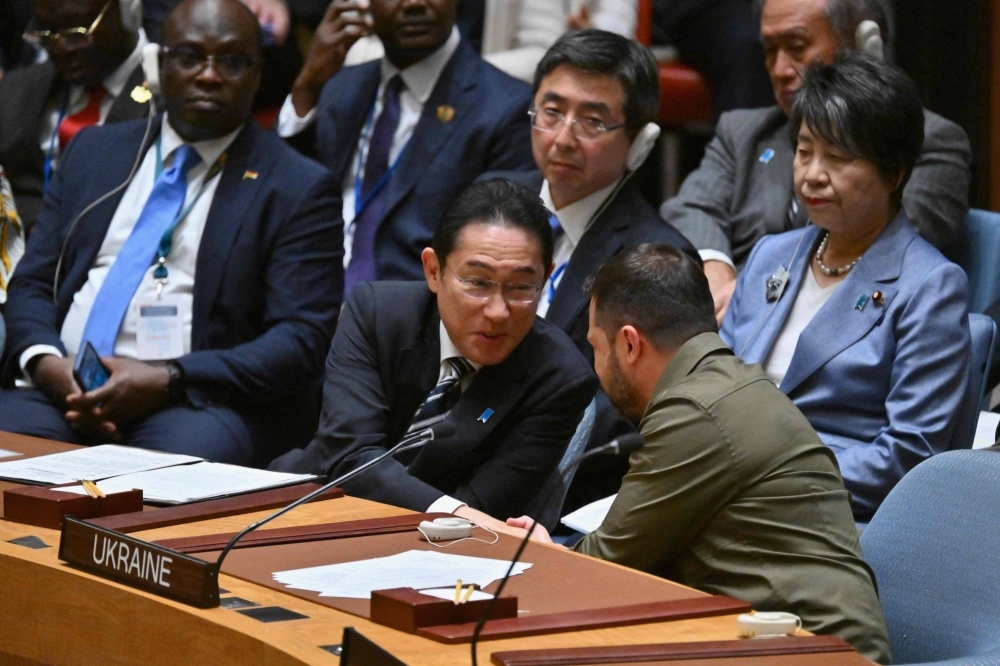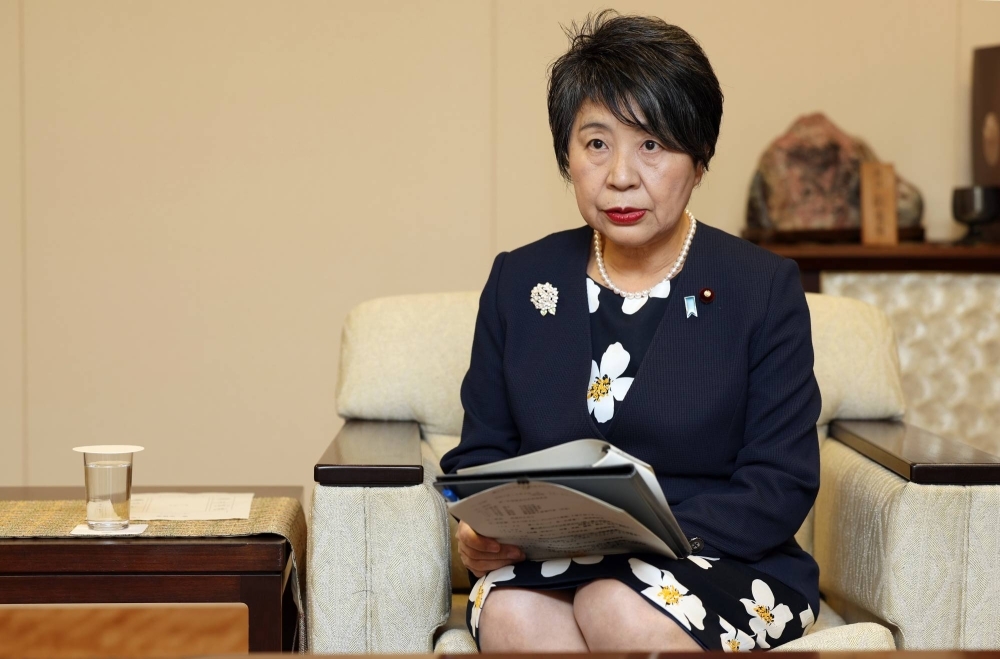With the conflict in Ukraine at a standstill and Western countries forced to cope with creeping war fatigue, Japan’s approach toward the war is unlikely to change in coming months.
“In order to stop the Russian aggression as soon as possible, the first thing Japan should do is strongly enforce sanctions against Russia and strengthen support for Ukraine,“ Foreign Minister Yoko Kamikawa told The Japan Times and other media outlets in an interview last week.
While admitting that each nation has its own individual interests, Kamikawa added that forming a united front to support Ukraine with the international community, including countries in the so-called Global South, is still essential.
Over a year and a half since the start of Russia's invasion, Japan’s support for Ukraine remains steadfast at a time when popular opinion across several European countries shows growing signs of weariness.
In a news conference last week, Kamikawa evaded questions over the likelihood of this "Ukraine fatigue" emerging in Japan.
“I don’t think it’s appropriate for the government to give an assessment on this matter,” Kamikawa said, reiterating Japan’s commitment to maintaining its sanctions against Russia.
In a sign of Tokyo’s renewed engagement with Kyiv, the foreign ministry on Saturday announced the kick-off of negotiations for a bilateral agreement between the two countries.
On Oct. 3, in an online meeting hosted by U.S. President Joe Biden on the war in Ukraine, Prime Minister Fumio Kishida reaffirmed his commitment to supporting Kyiv, and expressed his intention to hold a symposium on Ukraine's reconstruction efforts in Tokyo early next year and to step up Japan’s role in the rebuilding.
Japan has been in lockstep with its Group of Seven allies ever since the Russia-Ukraine war began in February 2022, acting in solidarity with Kyiv and taking a strong stance against Moscow.
Together with Japan’s traditional propensity to economically thrive in a stable international order, lessons learned from its own past attempts to appeal to Russia are behind Japan's current stance, said Yu Koizumi, an expert in security studies and Russia at the University of Tokyo.
“When Russia invaded Crimea in 2014, Japan imposed very weak sanctions on Russia,” said Koizumi. “In exchange, (former Prime Minister Shinzo) Abe aimed to improve relations with Moscow, solving the dispute around the Northern Territories and preventing a convergence between Russia and China.”
But those efforts were largely unsuccessful and “as Kishida saw that as foreign minister, he knows that going easy on Russia won’t do Japan any good,” said Koizumi. Russia-Japan relations won’t move forward for the foreseeable future, he added.
So far, Kishida has gone to great lengths and taken unprecedented steps to support Kyiv’s resistance to Russian aggression.
Soon after the invasion, the government set up a plan to welcome Ukrainian evacuees on a temporary basis — a rare move for a country often criticized for being unsympathetic to refugees. From December, the plan will be expanded to offer them long-term residency, even if they’re not legally recognized as refugees.
Meanwhile, Tokyo’s financial commitment to Ukraine has reached $7.6 billion (¥1.1 trillion), a figure dwarfing some large European nations.
While the government’s stance this time has been much firmer than in the past, the public as a whole didn’t voice any strong opposition, said Koizumi.
“People ultimately don’t have a strong interest in Ukraine, because they know it's not just a problem in their own region ” he said. “On top of that, there’s a recognition that Russia’s behavior is not in Japan’s best interest.”
Constraints on the export of weapons to countries involved in ongoing conflicts have prevented Japan from providing military aid to Ukraine. However, ongoing discussions within the government and the ruling parties to drastically revise existing regulations may open the way for a larger Japanese role in the conflict.
Even though the government's attempts to revise existing policies without directly asking the public have been questionable, there probably won’t be a backlash strong enough to bring down the Kishida administration, said Koizumi.
Supply-chain disruptions and instability in energy markets have hit nations across the globe, but countries in close geographic proximity to Ukraine have arguably taken the brunt of impacts from the conflict on a very different scale compared with Japan.
As of last Thursday, Japan had welcomed just over 2500 asylum-seekers from Ukraine since March 2022. In contrast, Germany has welcomed 1.15 million Ukrainian refugees while Poland has accepted over 900,000. Even countries that are geographically distant, such as Canada, have received far greater numbers of asylum applications than Japan.
Among European policymakers, especially in countries such as Poland, which heads to the polls in the coming weeks, tackling entrenched war-induced inflation has become a matter of growing priority more than the war itself.
In the U.S. last week, Biden reiterated his commitment to supporting Ukraine “for as long as it takes” in an attempt to quell speculation over waning U.S. interest in the war.
Under strong pressure from Republican Party lawmakers, aid to Kyiv was excluded from a budget passed in late September. Former U.S. President Donald Trump — the Republican front-runner in the 2024 presidential election — has repeatedly lamented the amount of American aid given to Ukraine, hinting at possible cuts if he’s re-elected as president.
While a second Trump administration or a victory by the nationalist front in Warsaw might have a considerable impact on the Western bloc’s stance toward Ukraine, public opinion in Japan on the war seems unlikely to change anytime soon.
But unlike Europe, which is experiencing fatigue from the ongoing conflict, any feeling of disinterest might stem from other concerns, Koizumi said.
“In Japan, some people just don’t want to get involved in security issues” said Koizumi. “Rather than being tired of the ongoing efforts, the public isn't that invested in the first place.”
culled from Japan Times




